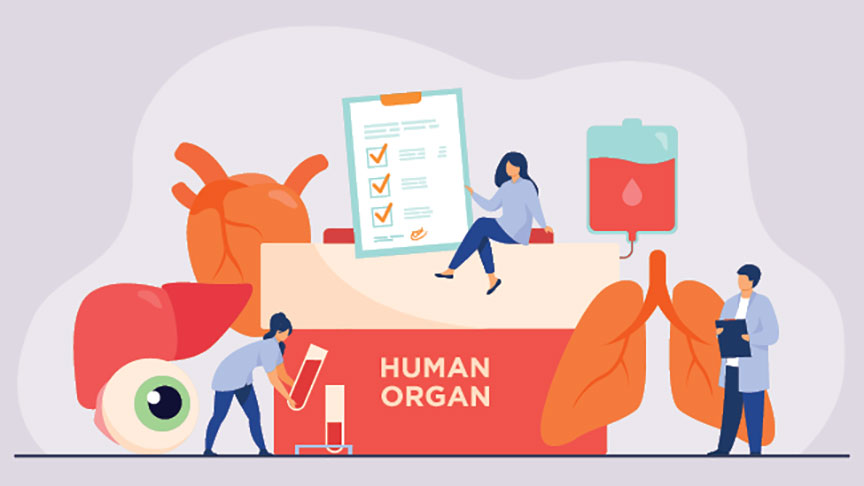
Registering to be an organ and tissues donor is easy. The process takes less than one minute and the generous act has far reaching effects, changing the lives of both transplant recipients and their families.
What is organ and tissue donation?
Organ and tissue donation is the life-saving and life-transforming medical process where organs and tissues are transplanted from a recently deceased person (the donor), to a very ill or dying person (the recipient) because one of their organs is failing.
The organs that can be transplanted include the heart, lungs, liver, kidneys and pancreas. Tissues than can be transplanted includes heart valves, bones, veins, tendons, ligaments, skin and parts of the eye.
An organ and tissue donor is someone who has registered to donate their organs and tissues when they pass away.
Below are some examples of people needing lifesaving organ and tissue transplants:
- People living with heart failure, viral infections or a congenital heart defect
- Cystic fibrosis suffers needing lung transplants as their own lungs cannot provide enough oxygen to their bodies
- Severe burn victims requiring skin grafts.
“Around 1,400 Australians are currently waitlisted for a life-saving organ transplant”
Darling Downs Health Donation Specialist Nurse Ms Liz Hill said.
Who can donate?
Almost everyone can donate their organs and tissues. Whether the donation occurs depends on where and how a person dies, and the condition of their organs and tissues.
You can donate two of your organs while are you still alive; your kidney and part of your liver. This is referred to as ‘living donation’. Most living donors are family members or close friends of the recipient.
How do I register?
It takes less than one minute to register to become an organ and tissue donor; however, it will have far reaching effects.
All you need is your Medicare Card Number and head on over to www.donatelife.gov.au/register-donor-today
What do I do next now that I have registered?
It is important to tell your family members once you have registered to be an organ and tissue donor. In Australia, the family is always asked to confirm the donation decision of their loved one. By sharing your decision with your family, everyone is aware of your final wishes.
It is also an opportunity to encourage your family and friends to register their wishes as well. Remember, it takes less than one minute to register. You and your family could all register over coffee, Sunday roast dinner, or during a walk in the park.
“One by one is how we’ll make a difference” Ms Hill said.
Need more convincing? Stastics show 9 in 10 families agree to donation when their loved one is a registered donor. However, this number drops to 4 in 10 if the person if not registered, and the family is unsure on whether they would have wanted to be a donor.
For further information about organ and tissue donation visit www.donatelife.gov.au.